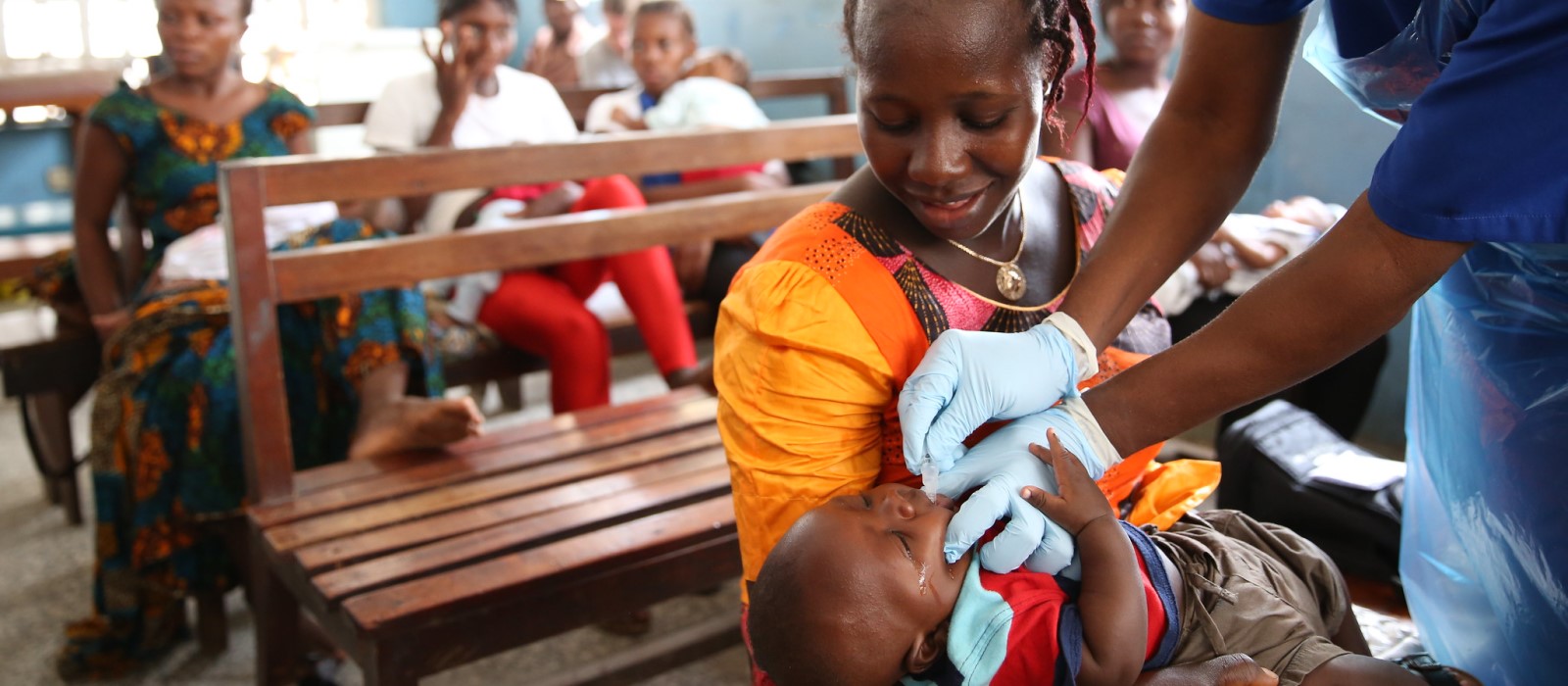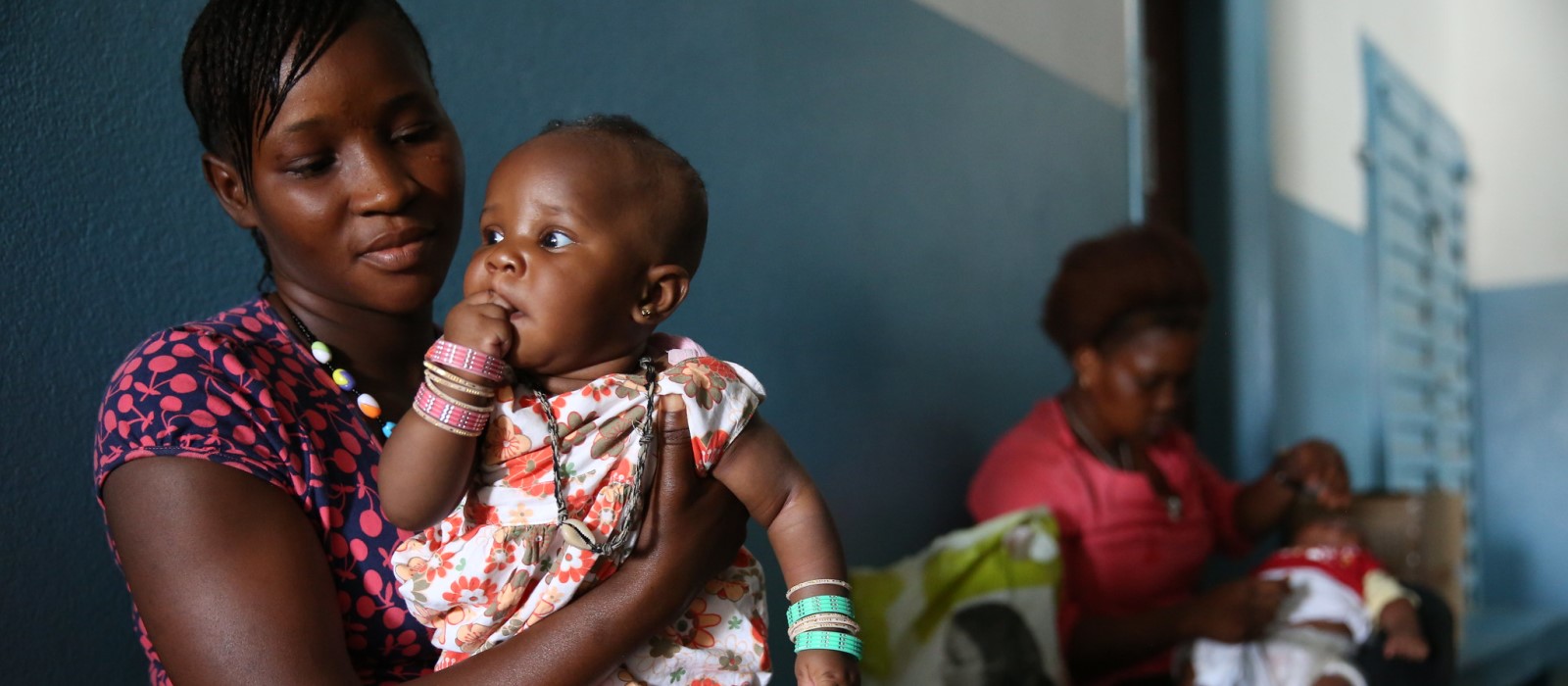Social Incentives for Child Immunization & Pregnancy Care

Dominic Chavez/World Bank via Flickr
Policy Context
Maternal and child mortality is a public health problem in many sub-Saharan African countries, where many women do not seek timely prenatal care or deliver their babies with a skilled attendant. This project rigorously measures the impact of social incentives on pregnancy care decisions in Sierra Leone, which has one of the highest rates of infant and maternal mortality in the world.
Research Design
Researchers randomly assigned colored bracelets to 120 public clinics in order to understand if behavior change is driven by social signaling. Pregnant women received different colored bracelets when they come in for prenatal care visits and deliver with a skilled attendant. For the first treatment group, the bracelets given showed that a woman has visited the clinic, but do not show how many visits; while for the second, it is observable how many recommended prenatal care visits a woman completed, and whether she delivered safely.
Results and Policy Lessons
Upon observing a child with a bracelet, parents have more accurate knowledge about their vaccinations as they are less likely to underestimate them. Subsequently, parents are 13 percentage points more likely to timely complete all vaccines, when they can signal the more difficult action. In contrast, when bracelets convey compliance with the easier action, there is no effect on parents’ immunization behavior. Parents respond strategically to the option value of signaling, adjusting their behavior nine months prior to realizing its benefits. These findings suggest that the opportunity to stand out can motivate individuals to exert greater effort even when the signaling benefits are uncertain and far in the future. Of policy importance, signals increase vaccine completion by 12 months of age at a cost of 1 USD per child, demonstrating that signaling incentives can be a powerful motivator to induce socially desirable behavior.


